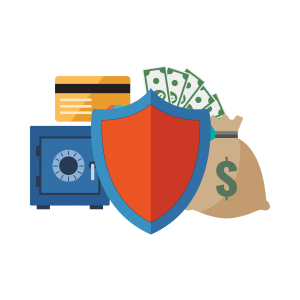 One of the major differences between cryptocurrencies and traditional banking is that it is not regulated. This means that you are responsible for all of the security measures in place to protect your cryptocurrencies.
One of the major differences between cryptocurrencies and traditional banking is that it is not regulated. This means that you are responsible for all of the security measures in place to protect your cryptocurrencies.
The concept of ‘banking’ with cryptocurrencies is often difficult to comprehend. Most people are used to physical banks where they can go to setup an account and then they handle the rest for you like monitoring your banking transactions and managing security issues (e.g if your cards are stolen etc.). If you have an issue or question with your account you can call the bank or log into your online account and someone will help you (e.g forgot password or transaction issues).
You pay fees to the bank for them to essentially manage your money and your financial security. You as the owner do have responsibilities but the banks take the majority of the weight of managing your money for you.
Cryptocurrencies are different. There is no bank. There is no one responsible for managing your financial security except you! This is a pretty daunting concept and one of the reasons you’ll see that many of the topics on our site focus on security, because you have to do it yourself or you could be burned.
So how does it work you ask? Typically speaking when you create an account with one of the crypto exchanges they are just providing you with ‘access’ to purchase cryptocurrencies and the rest is up to you.
When you sign up you will get a public key and a private key for your wallet. You will use the public key as a way of people sending you money (think of this like your BSB and Account details if you were using a traditional bank). Your private key is like your password and this is the MOST important thing to keep safe and secure. There is no entity managing this to complain to or to ask to reverse any errors (for the most part). This is why education and proper security precautions are a must.